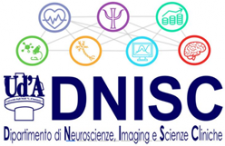Mindfulness-based intervention for children with ADHD and their parents

SEMINARIO / SEMINAR
Titolo / Title:
Mindfulness-based intervention for children with ADHD and their parents
Quando / When:
1 Dicembre 2022, ore 15:00 / 1st December 2022 at 15:00 CET
Dove / Where: Online (Microsoft Teams)

Relatore / Speaker:
Prof Corina Greven, Ph.D., Psychologist, Chair in Environmental Sensitivity in Health at the Radboud University Medical Centre
Abstract: Attention deficit hyperactivity disorder (ADHD) is characterised by developmentally-inappropriate inattention and hyperactivity-impulsivity shown across multiple settings. Next to coming with positive traits such as creativity, ADHD symptoms can come with serious consequences and impairment. A relatively novel approach in health care is mindfulness, the trainable ability to focus attention on experiences in the present moment, without judgment. Mindfulness shows promise in ADHD because it focuses on training aspects of self-control such as focusing attention, controlling impulses and regulating emotional responses - skills that children with ADHD often struggle with. What is more, mindfulness training can be given to children and parents simultaneously, as parents of children with ADHD often have elevated psychological problems themselves and parent-child relationships are impacted. Family mindfulness-based intervention (MBI) for child ADHD targets child self-control, parenting and parental mental health. However, its effectiveness remains unclear.
During this talk I will present results from the MindChamp study, a pre-registered randomised controlled trial comparing an 8-week family MBI as an add-on to care-as-usual (CAU) (n = 55) with CAU-only (n = 48). The focus is on a group of children with ADHD aged 8–16 years with remaining symptoms after receiving CAU, and who enrolled together with a parent. The primary outcome was parent-rated child self-control deficits post-treatment. Secondary outcomes in the children included ADHD symptoms, other psychological symptoms, well-being and mindfulness, rated by self, parent or teacher. Secondary outcomes in the parents included self-ratings of ADHD and other psychological symptoms, well-being, self-compassion and mindful parenting. Assessments took place at post-treatment, 2- and 6-month follow-up. Findings will be interpreted in the light of qualitative results interviewing families participating in the MBi